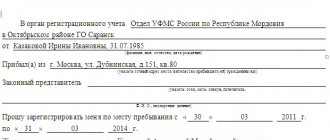Renting a Room in a Communal Apartment New Law 2020
You cannot rent out a room in a communal apartment without the consent of all the owners of the remaining rooms, since there is common property, corridors, toilet, bathroom, kitchen, which all owners use and have the right to.
Landlords of rented rooms argued that permission or any consent from neighbors for a stranger to move into their room is not required from neighbors in a communal apartment. In support of their position, they referred to Articles 41 and 42 of the Housing Code of the Russian Federation, which established the principle that the share in the ownership of common property in a communal apartment follows the fate of the ownership of the rented room.
In St. Petersburg, renting out a room in a communal apartment will require the written consent of neighbors
The city parliament supported amendments to the Housing Code developed by deputy Alexei Makarov (United Russia). He proposes to supplement the law with a new requirement: in order to rent out premises (use to third parties), the consent of all owners of a communal apartment is required. Until now, it was only necessary to obtain written consent from neighbors when selling rooms.
We recommend reading: Temporary registration of MFC St. Petersburg
“An important consequence of this law may be that rooms will no longer be purchased for investment purposes. It’s no secret that now many people buy rooms in communal apartments specifically for rent, since the return on them is higher than on apartments,” said the author of the project.
Renting a Room in a Communal Apartment New Law 2020
If you are the owner of a room in a small communal apartment, where all the neighbors have known each other for many years, the only way out of the situation is to reach an amicable agreement with them. Otherwise, nothing may come of your idea. It is a rare tenant who will survive for a long time in the conditions of a “guerrilla war” unleashed by other tenants, unless he has strong nerves and the desire to fight for his rights.
“In my practice, neighbors were often not happy with new residents. Few people like to have strangers in the apartment, especially if they change often. Therefore, the owners of other rooms can also be understood,” notes Dmitry Shchegelsky. “However, the more rooms there are in a communal apartment, the more indifferent the neighbors’ attitude to such issues is, as practice shows. I saw communal apartments with 7-8 rooms, where they were all rented out. In such a situation, it is much easier for the owner to do business.”
My neighbor is renting out a room in a communal apartment, I am against it. What to do?
The situation when one of the owners of a room in a communal apartment does not live in it and rents it out to strangers, and the second does not want to have neighbors who change from time to time, is not uncommon.
Let's try to figure out whether the owner has the right to rent out his room without the consent of the other owner and whether this can be prevented. Russian legislation does not provide a clear answer. Judicial practice is also ambiguous and depends on whether the party refers to the norms of civil or housing legislation.
How to deal with your neighbor? She rents out a room in our communal apartment
Neighbors are noisy: your rights and procedures
The right of the owner to own and dispose of his property is guaranteed by the Constitution of Russia and, it would seem, is unshakable, but there are also some nuances here. Is it possible, while exercising your rights, to violate the rights of your neighbors? After all, if a room is rented out, the residents not only occupy the room itself, but also use common areas: kitchen, hallway, bathroom and toilet. This is where a conflict arises between neighbors in a communal apartment.
According to the Housing Code, the owner of a room in a communal apartment has the right of ownership to the common premises in it, but the procedure for using them is not defined. It is regulated by the rules of the Civil Code, according to which the procedure for using common premises must be established by agreement of the owners. And if they cannot come to such an agreement, then by court. Moreover, in practice, the courts do not explain exactly what agreement the owners must come to and what procedure for using common premises must be established.
And this is hardly possible in practice. How can you set the hours for using the toilet, for example? And how does the court propose to monitor the implementation of such an agreement, what penalties should be applied to the violator? Again, if the owner of the room uses the common areas without any agreement, why should tenants enter into one? The courts ignore all these issues and make decisions banning renting out a room, citing the need to obtain the consent of the owner of other rooms in the communal apartment.
The courts take the opposite position, rejecting claims for a ban on renting out a room. In their decisions, they proceed from the fact that the legislation does not provide for the obligation of the owner of a room in a communal apartment to obtain the consent of other owners to rent out the room, and common premises in the apartment, such as a kitchen or bathroom, are not independent objects of law and follow the fate of ownership per room.
In my opinion, when resolving such disputes, the courts should be guided by the norm of the Civil Code that the owner has the right, at his own discretion, to take any actions in relation to his property that do not contradict the law and do not violate the rights of other persons. That is, the courts should not limit the owner to a formal obligation to obtain the consent of other owners to rent out a room, effectively putting the owners in an unequal position and dependence on obtaining such permission.
Law on renting out a room in a communal apartment 2020
In accordance with paragraph 2 of Art. 76 of the Housing Code of the Russian Federation, for the sublease of residential premises located in a communal apartment, the consent of all tenants and members of their families living with them, all owners and members of their families living with them is also required.
However, as we see today, thanks to soaring housing prices, communal apartments and dormitories are now the most budget option for rent. It is necessary to prepare for renting out the premises.
Renting a room in a communal apartment new law 2020 details
The owner of the premises must independently prepare for the conclusion of the transaction. You can use advertising and search for possible clients yourself. To do this, they look through specialized Internet portals, or invite specialists from real estate agencies. The second option is preferable because it minimizes the likelihood of encountering scammers.
We recommend reading: Social Package 2020
In St. Petersburg, and not only St. Petersburg residents know this, most of the communal apartments belong to citizens on the right of common shared ownership with the determination of a nominal share in the right, but without the allocation of a share in kind. That is, theoretically, a citizen has part of a kitchen or bathroom, but this is not formalized.
Rules for renting out a room and share in an apartment under a lease agreement: is the consent of neighbors required?
Forms for drawing up the documents described above can be found on the Internet and printed on a printer in A4 format. The agreement and other papers can be printed on a computer or drawn up in handwritten form , but then they must be written in neat and easy-to-read handwriting in at least two copies.
Termination of the contract at the initiative of the landlord usually occurs due to non-compliance with the terms of the agreement by the tenant. The contract is terminated at the initiative of the tenant if the landlord violates the terms, or if the tenant decides to change his place of residence.
We recommend reading: How much is the state duty for a passport?
Renting a Room in a Communal Apartment New Law 2020
Lawyer Vasily Katynkin Ekaterinburg answers: It is necessary to find out the legal status of the rooms in this communal apartment. The communal apartment is in shared ownership. In this case, the receipt for payment of utility services is usually general, unless the personal accounts are divided.
These responsibilities also apply to tenants of a room in a communal apartment. Thus, if tenants do not clean common areas, do not participate in the maintenance of the common property of a communal apartment, make noise at late times or otherwise violate the rights of a neighbor-owner, the latter has the right to protect his rights and evict the violators from the apartment.
Lawyer Vasily Katynkin (Ekaterinburg) answers:
It is necessary to find out the legal status of the rooms in this communal apartment. There are two options.
- The communal apartment is in shared ownership. For example, one owner owns 2/3 of the share in the property right, and another 1/3 of the share. In this case, the receipt for payment of utility services is usually general, unless the personal accounts are divided.
- The rooms in a communal apartment are independent, each of them is issued a separate certificate of ownership. Receipts for utility bills are usually separate.
In the first case, the object is shared; accordingly, when moving in temporary or permanent residents, when providing registration at the place of residence, it is necessary to obtain the written consent of the second owner to move in. In the second situation, the objects are independent from each other and it is not necessary to obtain consent.
In case of a dispute, you can call the district police officer to establish the identity of the person moving in, as well as the reasons for his move-in. Next, you can write a complaint to the second owner, in which you need to indicate that consent to move in was not received with a demand for eviction. If a negative response is received to the claim or the request is ignored, then you can file a claim in court demanding the eviction of the person.
Of course, it is necessary to take into account a large number of factors: the number of owners and the size of their shares, the number of registered persons, the number of actual residents, the total area of the apartment, the presence of persons with health problems (serious diseases, disabilities, etc.).
It should also be taken into account that the owner has the right to move his minor children into the residential premises without obtaining the consent of the other owners and residents.
Rules for renting a room in a communal apartment
Article 41 of the RF Housing Code. Ownership right to the common property of the owners of rooms in a communal apartment 1. The owners of rooms in a communal apartment own, by the right of common shared ownership, the premises in a given apartment used to service more than one room (hereinafter referred to as the common property in a communal apartment). 2. Changing the size of common property in a communal apartment is possible only with the consent of all owners of rooms in this apartment through its reconstruction and (or) redevelopment
I own the room and I would like to rent it out, because relations with neighbors have much to be desired, and I have children and I wouldn’t want them to see this. But precisely because of these disagreements, I’m afraid that nothing will work out.
The essence of the problem
If you decide to rent out a room in a communal apartment, then you cannot do without involving your neighbors. The question is how strong their intervention will be. Because the contractual relationship between the employer and the employer will include other people. If your room is already privatized, then you can rent it out or rent it out at your discretion.
But at the same time, your neighbors may be categorically against such a decision. And then a real war can begin. They can find a lot of reasons why the tenant will have to vacate the room: lack of registration or use of the housing for other purposes, etc. If a room in an apartment is rented to a large family, then the rights of neighbors are violated, who say that there are certain standards for a large number of people living in one area.
To avoid such situations, the landlord, i.e. the owner must obtain the consent of all registered adult residents of the rooms in the communal apartment. Moreover, it is best if it is in writing. Their consent, the conditions of use of the home and common areas, and penalties for violating the conditions must be reflected in the lease agreement itself. Only then will you avoid conflicts and be able to rent out your property legally and honestly.
Has a law been adopted in St. Petersburg on renting out rooms in communal apartments?
But if a citizen decides to rent out his part in such a shared apartment, he does not ask anyone. Since there is no requirement to obtain consent to move into a room designated for the residence of a specific owner with the general consent of all owners of shares in the right of common ownership of a communal apartment, third parties, note the initiators of the document.
People who had common kitchens and bathrooms, toilets and hallways dreamed for years that communal “settlements” were about to cease to exist. But these aspirations melted away with the introduction of private home ownership. Apartments began to be bequeathed, sold and bought, as well as divided living space into both rooms and square meters.
You can rent out a room in a communal apartment without the consent of your neighbors
Yes, that's right, it is in their interests to ask for your written consent. But at the same time, you can officially send them your disagreement. And be sure to send by registered mail with acknowledgment of delivery and a list of the attachments .
... the rental of residential premises in a communal apartment by the owner of the share is in itself a legal action. Moreover, restricting B.’s right to rent out (hire) his rooms in a communal apartment without obtaining the prior consent of the plaintiff as a participant in common shared ownership violates B.’s rights as the owner of residential premises in this apartment, which is contrary to Art. 209 of the Civil Code of the Russian Federation and Art. 30 Housing Code of the Russian Federation.
We recommend reading: Help 2 Personal Income Tax 2020 What It Looks Like
How to sell a room in a communal apartment in 2020
A transaction for the sale of a room in a communal apartment can hardly be called simple. In this case, the law gives the priority right to buy it from the owner who wants to sell it to the owners of other rooms. You should also consider whether the room is privatized. Housing owned by the municipality cannot be sold according to law. Other difficult issues may arise, so before deciding on a deal to sell a room, you need to study the regulatory framework and consult with specialists.
- in case of sole ownership of a room in a communal apartment (one owner), the agreement is drawn up in simple written form;
- the sale of a room in common shared ownership requires notarization of the transaction;
- a room on the right of common joint ownership (owned by spouses) can be sold under a simple written agreement. It is necessary to obtain the consent of the second spouse to the transaction, certified by a notary.
Guests in a Communal Apartment Law 2020
Despite the fact that communal apartments are gradually disappearing, their problem still remains relevant. When resolving various issues related to living and renting such housing, you should find out what responsibilities and rights the owners of the rooms have, or how to rent out a room in a communal apartment
Dear Alfa! In accordance with Article 17 of the Housing Code of the Russian Federation, the use of residential premises is carried out taking into account the rights and legitimate interests of citizens living in this residential premises, neighbors, fire safety requirements, sanitary and hygienic, environmental and other legal requirements, as well as in accordance with the rules use of residential premises approved by Decree of the Government of the Russian Federation dated January 21, 2006 No. 25. Considering the above, smoking in common areas is illegal as it violates the rules of the hostel (which is confirmed, among other things, by the judicial practice of the St. Petersburg City Court).
Contract details
IMPORTANT. When concluding a lease agreement for a share in the right to own residential space, it is necessary to take into account the requirements of Article 249 of the Civil Code of the Russian Federation.
Article 249 of the Civil Code of the Russian Federation. Expenses for maintaining property in shared ownership
Each participant in shared ownership is obliged, in proportion to his share, to participate in the payment of taxes, fees and other payments on the common property, as well as in the costs of its maintenance and preservation.
We invite you to familiarize yourself with: Documents when purchasing an apartment in 2019: resale, new building, mortgage
The costs of maintaining joint property are distributed in proportion to the amounts recorded in the certificates of each of the participants. Peculiarities of drawing up this type of agreement:
- The subject of the contract will be a specific room or rooms and the size of the area to be rented. This fact must be confirmed in writing by other participants or recorded in a court decision.
- It is necessary to fix the amount of reimbursement for utility bills.
- The rules for using the common area should be outlined, taking into account the consent of the co-owners.
- The amount of rent and form of payment are agreed upon with all participants.
The clauses in the agreement are written in accordance with the standard form for filling out a residential lease agreement:
- obligations of the parties;
- rights of the parties;
- special conditions;
- details of the parties.
Housing must be suitable for living.
Residents are against: is it possible to rent out a room in a communal apartment without the consent of neighbors
The main thing is to write down the date of conclusion of the agreement, the details of both parties, the subject of the agreement (room, its area, address), the procedure for financial settlements and a complete inventory of the property.
- The rights and obligations of the parties in such an agreement will be exactly the same as when renting a regular one-room apartment. The only thing that should be written down as a separate clause is that in addition to the room, common areas are available for rent.
- In other conditions, it can be stated that the employer is obliged to comply with the duty schedule in these places, if there is one in the communal apartment.
The tenancy agreement for a room in a communal apartment itself will be similar in content to a standard rental agreement for an apartment. When concluding a transaction, the owner and tenant must have identification documents with them. The owner of the residential premises will need a document confirming his ownership of the living space provided for rent.
Privatized room
If your room in a communal apartment has already been privatized, then you can rent it out, but notify other people, because it is only partially your property. It is necessary to follow the main rule and remember about the norms of living in a small area. According to the law, there must be at least 12 square meters per person. This is why you cannot rent out a room for a workshop or office.
The rental conditions must be immediately described in the lease agreement. It is similar to the document that is signed when renting an apartment. It also needs to indicate the address, passport details of all parties, terms and conditions for making payment, and basic rental conditions. Renting a room in a communal apartment can only be done after the consent of all residents who have rights to it has been obtained.
It is important to enter information about the use of common services so that disputes and disagreements do not arise. If other tenants appear in your home who were not described in the main contract and this was done without your knowledge, then you have the right to terminate the lease agreement early without paying compensation.
It is important to understand that you do not need permission from the neighbors of other rooms in a communal apartment to rent or rent premises. But you will need their written consent that they do not mind sharing the same bathroom and kitchen with the tenant.
In this case, everything is more complicated, because without the permission of your neighbors you cannot do anything. You will need to enter into a lease agreement with them for the joint property. Otherwise, your residents will not be able to use even the common corridor. Naturally, all this is documented in writing.
The documents you may need are the following:
- Written consent from the authority or municipality that owns the apartment to rent it out;
- Permission to rent issued in accordance with the law from all family members or owners of the room;
- Drawing up a declaration of income from the rental or rental of premises;
- The lease agreement for a room in a communal apartment.
It is important to understand that there are also restrictions that relate to this issue.
For example, if the tenant is sick with a serious chronic disease, then the room cannot be rented to him, because there is a risk of infecting other residents. This also applies to the issue of renting or renting real estate by a family, subject to violation of the housing norm of 12 square meters per person. In these situations, your neighbors may demand termination of the contract even through court.
We suggest you read: Tablet exchange - advice from lawyers and lawyers
Has a law been adopted in St. Petersburg on renting out rooms in communal apartments?
That is, theoretically, a citizen has part of a kitchen or bathroom, but this is not formalized. According to the prevailing practice in the country, a citizen uses a room whose area corresponds to his share in the right of common property, the explanatory note says. In accordance with the Civil Code of the Russian Federation, ownership and use of property in shared ownership is carried out by agreement of all its participants, and if agreement is not reached in the manner established by the court, it is stated in the accompanying documents to the bill.
We recommend reading: Construction of Social Housing in Novodvinsk After 2020
The possibility of carrying out such transactions led to the formation of a number of fraudulent schemes, in particular those related to the acquisition of several small shares in one premises for the purpose of the further survival of its real owners. In a word, the result of allowing the sale of microshares was numerous scams and deceptions of ordinary citizens. It is also assumed that registration of residents in an apartment cannot be carried out if each of them has a share in an amount that does not reach the threshold of the registration norm of the premises. That is, even if the share is purchased, its owner will not be able to live in the apartment, because the size of the purchased share is too small and does not meet the standards. The exception is the relatives of the owner of the apartment and, in general, family members of the spouse, parents, children, uncles, brothers, and so on. However, this point still remains in question. Details of the operation of general purpose areas must be established in as much detail as possible. This especially applies to corridors, kitchens, and bathrooms. It is important to agree on the payment procedure for the provision of utility services. It is especially recommended to discuss the times when it is permissible to receive guests or disturb the peace. Then in the future there will be fewer problems with tenants.
Renting your own room in a “communal apartment” - do you need the consent of your neighbors?
In 1994 The Constitutional Court of the Russian Federation recognized the right of tenants of rooms in communal apartments to privatize these rooms, regardless of the consent of neighbors who are tenants of adjacent rooms in the same apartment. This right has been exercised. Thus, the owners of separate residential premises appeared in the apartment. The apartment was not privatized into common shared ownership.
According to the rules of Article 52 of the RSFSR Housing Code, valid until March 1, 2005, an isolated room in a “communal apartment” was recognized as an independent subject of a social tenancy agreement: “ The subject of a tenancy agreement can only be an isolated living space, consisting of an apartment or one or more rooms. A part of a room or a room connected to another room by a common entrance (adjacent rooms), or utility rooms cannot be an independent subject of a rental agreement.”
Entered into force on 03/01/05. The Housing Code of the Russian Federation also recognized an isolated room as a residential premises. Article 15 of the RF Housing Code: “2. Residential premises are recognized as isolated premises, which are real estate and are suitable for permanent residence of citizens (meets established sanitary and technical rules and regulations, other legal requirements (hereinafter referred to as requirements)). Article 16 of the Housing Code of the Russian Federation classifies an isolated room as a type of residential premises.
Thus, tenants of rooms in communal apartments, who occupied the premises on the basis of separate social tenancy agreements, exercised their right to privatize these rooms.
The owner, in accordance with Article 209 of the Civil Code of the Russian Federation, has the right to own, use and dispose of his property in accordance with the law: “1. The owner has the rights to own, use and dispose of his property. 2. The owner has the right, at his own discretion, to take any actions in relation to his property that do not contradict the law and other legal acts and do not violate the rights and interests protected by law of other persons, including alienating his property into the ownership of other persons, transferring it to them, while remaining the owner , the right to own, use and dispose of property, pledge property and encumber it in other ways, dispose of it in any other way.”
Consequently, the owner of the room has the right, among other things, to rent out (rent, provide for free use) his room in a communal apartment. But in practice, the question arises: is it necessary to obtain consent from the neighboring owners of a communal apartment to exercise this right?
The author of this article believes that such consent is not required and is not provided for by law.
First of all, it should be noted that the room to be rented is not in the common shared ownership of the persons living in the communal apartment. Of course, a room is part of an apartment according to Article 15 of the RF Housing Code: “4. A room is recognized as a part of a residential building or apartment intended for use as a place of direct residence for citizens in a residential building or apartment.” But in this case we mean a room as part of an apartment in the sense of the technical and functional relationship of the room as a part and the whole as an apartment. It is clear that the room must be located in an apartment (in this case, in a communal apartment). But this does not mean an unconditional legal relationship - the room may not be a share in the ownership of the apartment. The room may be a separate object of private property rights.
If the property is not in common shared ownership, then there is no need to ask anyone for consent when determining the procedure for using this property. This is the owner's business. Those. The owner of the room has the right to independently decide whether to rent out the room or not. And the position of your roommates has absolutely no meaning in this matter.
There is an approach that requires the consent of neighbors. This position is based on such arguments.
The Housing Code of the Russian Federation established that common property (common places of use) in a communal apartment is in the common shared ownership of the owners of the rooms. Article 41 of the RF Housing Code: “1. The owners of rooms in a communal apartment own, by right of common shared ownership, the premises in the apartment used to service more than one room (hereinafter referred to as the common property in the communal apartment).”
Based on this, the conclusion is drawn - because the tenant will use the common property in the “communal apartment”, and this property is in common ownership, then the neighbors’ consent to use this property is required. No consent means no right to use, which makes it impossible to use the room. Those. It is not possible to conclude a rental agreement for a room without the consent of the neighbors.
If we reason in this way, then it is impossible to rent out an apartment in the absence of the consent of the other residents of the house. Because common property of the house - staircase, elevators, steps, attics, part of the land plot under the house, etc. is in the common shared ownership of the residents - apartment owners. After all, the tenant will use this property.
Article 36 of the Housing Code of the Russian Federation : “1. The owners of premises in an apartment building own, by right of common shared ownership, premises in this building that are not parts of apartments and are intended to serve more than one premises in this building, including inter-apartment landings, stairs, elevators, elevator and other shafts, corridors, technical floors, attics, basements in which there are engineering communications, other equipment serving more than one room in a given house (technical basements), as well as roofs enclosing load-bearing and non-load-bearing structures of a given house, mechanical, electrical, sanitary and other equipment located in this house outside or inside the premises and serving more than one premises, the land plot on which this house is located, with elements of landscaping and landscaping and other objects intended for the maintenance, operation and improvement of this house, located on the specified land plot (hereinafter referred to as the general property in an apartment building). The boundaries and size of the land plot on which the apartment building is located are determined in accordance with the requirements of land legislation and legislation on urban planning activities.”
Obviously, the position is not based on current legislation. First of all, you need to proceed from the following. A room is rented as private property. The rental agreement is concluded regarding property that is not included in the common property of the persons living in the apartment.
The common property in a communal apartment follows the fate of the room in the communal apartment. Article 42 of the Housing Code of the Russian Federation: “ 3. The share in the right of common ownership of common property in a communal apartment of the owner of a room in this apartment follows the fate of the right of ownership of the specified room.”
This means that common property is the property of the main thing - the room, therefore, renting out a room entails the acquisition by the tenant of the right to use part of the common property in the communal apartment.
According to Article 135 of the Civil Code of the Russian Federation: “ A thing intended to serve another, main thing and connected with it by a general purpose (accessory), follows the fate of the main thing, unless otherwise provided by the contract.”
The share in the common property of a communal apartment is intended for the maintenance of the room, otherwise the tenant will not have the necessary amenities. Therefore, the transfer of a room for rent entails the transfer for use of part of the common property in the “communal apartment”.
It seems proven that the owner of a room has the right to enter into a rental agreement without taking into account the opinions of neighbors in a communal apartment.
If, during the course of residence, the tenant infringes on the rights of neighbors in the apartment, then the neighbors have the right to put forward demands for the elimination of these violations, up to and including termination of the rental agreement with this tenant. Renting out a room in itself does not infringe on the rights of your roommates.
Independent lawyer O.V. Pantyushov
Consultations, case management in court, t. (095) 2654885.
Page – www.jurisprudential.narod.ru
Selling a room in a communal apartment: how it happens
- Ask the landlord for the title documents for the apartment.
- Pay attention to your neighbors in the communal apartment and the general situation in the house. Residents who abuse alcohol or have other bad habits, dirt and unsanitary conditions in common areas will definitely add to your troubles. Therefore, it is better to refuse such housing.
- Be sure to conclude a rental agreement for residential premises. It is better to entrust the drafting of the contract to a housing lawyer.
- In the transfer and acceptance certificate, be sure to describe all the property in the room and its condition. This way you will protect yourself from possible unfounded claims from homeowners.
“In practice, situations are possible when a neighbor in a communal apartment rents out a room, and those living in other rooms, dissatisfied with the new tenants, go to court. The impetus for the increase in the number of such claims was the Determination of the Judicial Collegium of the Armed Forces of the Russian Federation dated September 24, 2013 No. 5-KG13-101, which stated that the disposal of common property should be carried out by all owners together. However, judicial practice in cases where a neighbor rents out a room, but the previous tenants want to forcibly evict the tenants, continues to remain extremely ambiguous.”
Free legal assistance
It is very difficult to force adults to observe, in fact, the only rule of living in a communal apartment: you need to respect each other, if possible, not disturb your neighbors and abide by the agreements reached.
Nevertheless, representatives of real estate agencies, when drawing up rental agreements, often ask the owner for the written consent of neighbors to rent out a room. State bodies may adhere to a similar position when registering a person at the place of residence in a communal apartment.








